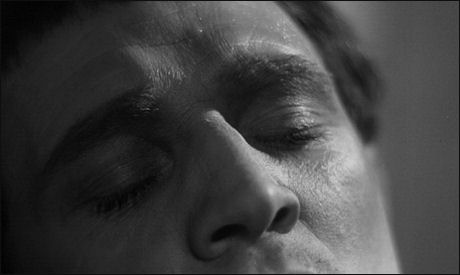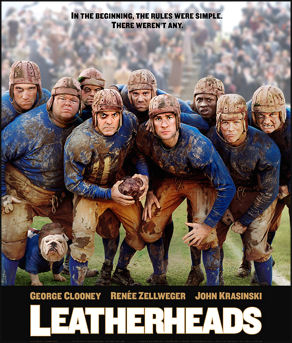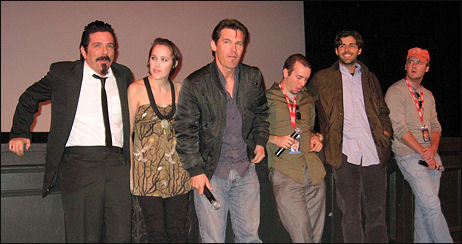Imagine the complex thoughts and emotions being experienced by those ten L.A. motorcycle cops as they roared down Coldwater Canyon last night (actually this morning), accompanying an ambulance carrying the permanently fried, baked and scattered Britney Spears, the ultimate meltdown/basket case of our times, along with two squad cars and a handful of SUVs on a trip to a medical facility at UCLA. (Her psychiatrist apparently felt her frazzled state of mind demanded a lockdown evaluation.)

You’re vrooming along on your bike and saying to yourself, “This is my life…look at this! I get paid either way but this is embarassing. I’m an officer of the law by day but right now I’m a paid goon, like a buffed-up spear-carrying guard in a Cecil B. DeMille Biblical spectacle…I’m part of a deranged psychiatric circus. I’ll be reading about myself in the supermarket tabs this weekend. I feel used, abused. The sickness…the madness!”
Paying the least bit of attention to this grotesque spectacle is like glancing at Medusa; one look and you’re infected.







